The long-serving chief executive of a Brighton charity is due to be awarded an honorary doctorate today (Thursday 26 January).
Sussex University has recognised Andy Winter, 63, who retired last week from BHT Sussex, formerly Brighton Housing Trust.
Tributes were paid last week to Mr Winter who joined the housing and homelessness charity 37 years ago and became chief executive 20 years ago in January 2003.
Caroline Lucas, the Green MP for Brighton Pavilion, said: “Those of us who have worked alongside Andy at any time during his incredible 37 years at Brighton Housing Trust know his dedication, his passion and his commitment to helping the most vulnerable people in our city is unrivalled, alongside his clear vision of how to build a better city and a better world.
“I am in no doubt that Brighton and Hove is a far kinder, more compassionate place thanks to your tireless work at BHT, despite the incredibly difficult years during which you have held the role.”
BHT Sussex board member Melanie Davis said: “He has enlightened people’s views and understanding of homelessness and of caring for those people that many often choose to ignore.”
A fellow BHT Sussex board member Paul Featherstone said that he took Mr Winter sailing last year.
Mr Featherstone said: “I am still not sure I believe his assertion that he had never handled a yacht before. He was a natural helmsman, just as he is ashore.”
Kelvin MacDonald, who chairs the BHT Sussex board, read several other tributes at an event at All Saints Church, in Hove, to mark Mr Winter’s retirement.
Mr MacDonald also said: “Andy was born and educated in South Africa but moved to the UK in 1979 to avoid conscription into the then apartheid army.
“He did not attend university. In the early 1980s, he worked for three years at St Dunstan’s, the home for blind ex-service personnel, in Brighton (now Blind Veterans UK).
“In 1985 he joined Brighton Housing Trust, initially as a residential support worker.”
When he joined, the charity had about 10 employees. There were about 150 when he became chief executive. There are now about 300 staff.
He also served as a councillor on the former Brighton Borough Council from 1985 to 1992.
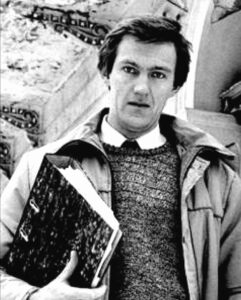
Mr MacDonald said: “Between 1996 and 2000 he undertook original research into drug related deaths in Brighton and Hove.
“In 2014 he was on the Centre for Social Justice Working Group for its report on enabling grass-roots charities to tackle poverty.
“In that year he contributed a series of articles to the Huffington Post. He now writes a weekly column for the Argus.
“He frequently appears on television and radio to discuss issues around homelessness, addiction and mental wellbeing and local and national housing policy.
“In 2014 he was voted ‘Inspirational Leader in Housing’ by the Chartered Institute of Housing and Inside Housing magazine – and in 2015 he was voted as having made the ‘Outstanding Contribution to Sussex’ by the readers of the Argus.
“He has a Postgraduate Diploma in Management Development and is a Fellow of the Royal Society of Arts.
“It is hard to encapsulate the range of achievements that BHT Sussex, under Andy’s inspirational leadership, has made.”
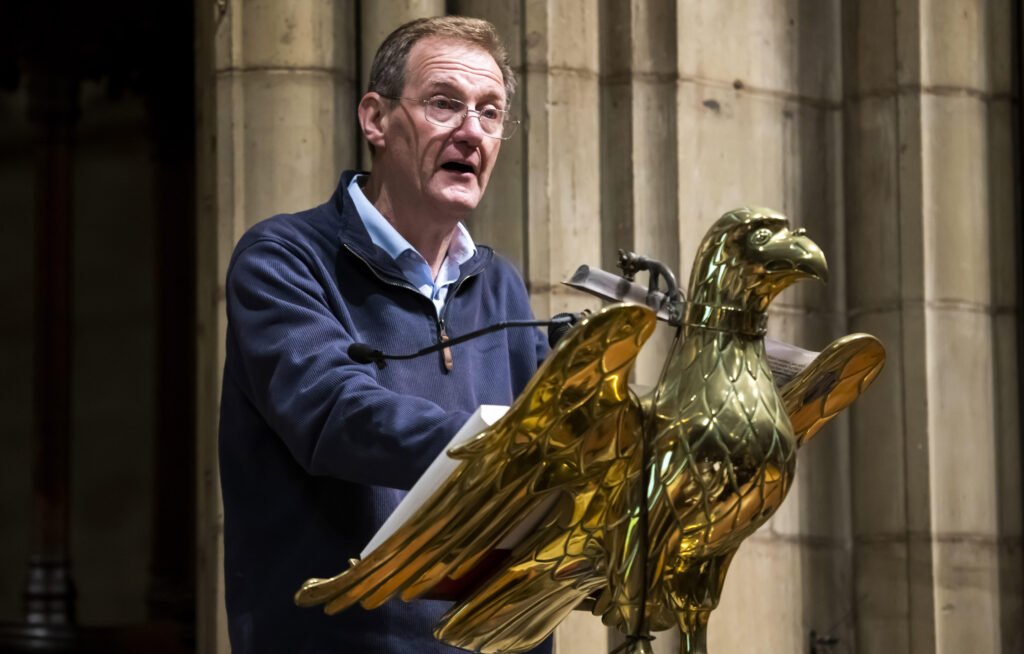
Mr Winter said: “Fifty-four years ago, some students, two vicars and a young man involved in the property business, inspired by the Ken Loach film, Cathy Come Home, set up the Brighton Hostel, drawn together by a shared determination that no one should sleep on the streets of this town.
“That young man from the property business is actually here this evening, Sir Peter Field, who rose to become the Lord Lieutenant of East Sussex. Without your vision, Peter, and that of your co-conspirators back in 1968, we wouldn’t be here today.
“From that humble beginning, we now have the amazing organisation that we know today, working last year with almost 10,000 people across Sussex, and employing 300 members of staff.
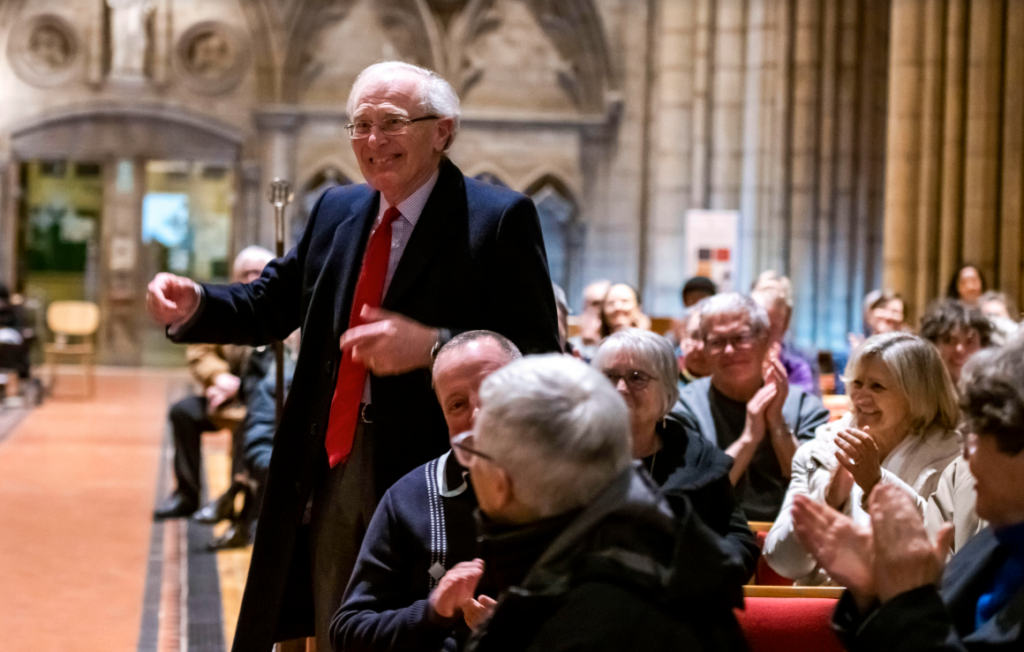
“Our much-loved and much-missed Life President, the late Pat Norman, said at our 40th birthday celebrations that that occasion was no cause for celebration, that it was a matter for regret that our services were still needed. What would she say today given that our services are needed more today than ever before?
“We are engaged in a noble undertaking – changing lives across Sussex and addressing the causes of homelessness, poverty, exclusion and abuse.
“Since I was 25, I have had the greatest honour to have played a part in the work of this amazing organisation.
“I have learned a lot over the years from my family and colleagues but most of all I have learned from our clients and tenants who have provided me with an education that few could ever hope to receive.
“My teachers have included people recovering from addictions or overcoming mental ill-health or who have survived the daily indignities and deprivations of homelessness and rough sleeping.
“They have provided me with insights into a hellish world that someone of my class and background rarely gets.
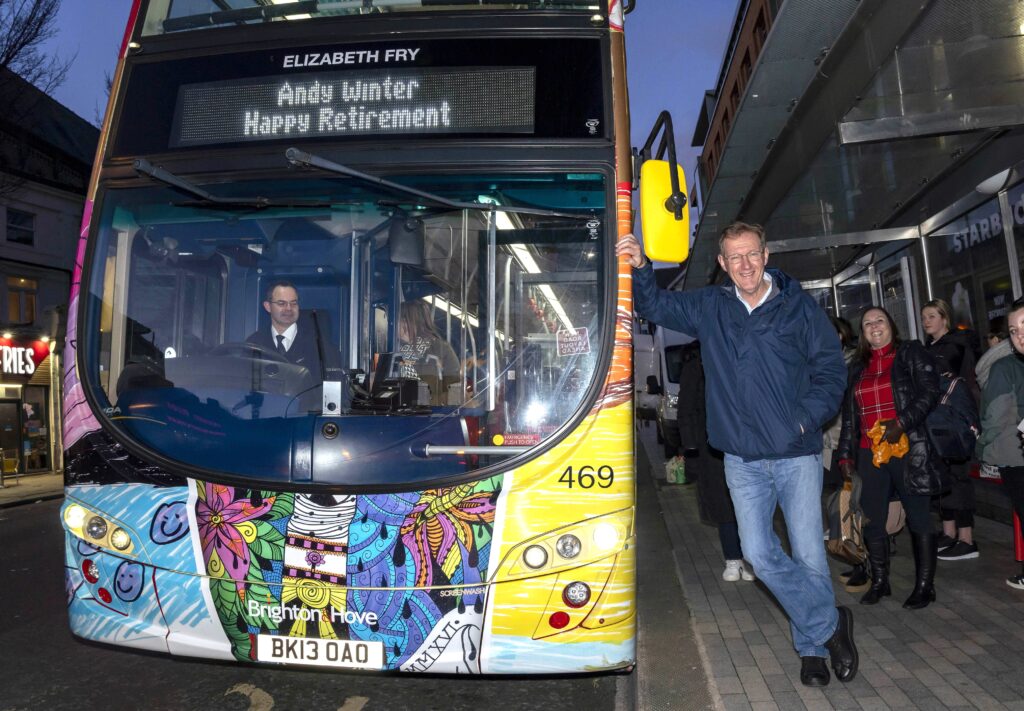
“They have taught me the simple uncomplicated truth that change is possible, including recovery from addiction.
“Mike is in recovery from heroin addiction. The son of a bricklayer, he was ridiculed when he said that he wanted to go to university. ‘People like us don’t go to university,’ he was told. But he went to Sussex University, earned his degree, masters and doctorate. He now teaches at another university.
“Society, and often charities, limit potential by applying labels and diagnoses to their beneficiaries that hold them back from achieving their potential.
“For most of us, however, our identity comes from what we do. I don’t introduce myself as being type 2 diabetic. It might be true but to do so would be weird. I say I work for BHT Sussex.
“Mary, a woman in her early sixties, taught me the importance of employment in establishing our identities. She had been admitted to a psychiatric hospital in the mid 1950s. Her admission papers recorded her diagnosis as ‘promiscuous’.
“When she was discharged from that hospital – 35 years later – we housed her. Later she got a job as a lollipop lady. I saw her one Sunday morning, still wearing her uniform even though she only worked weekdays.
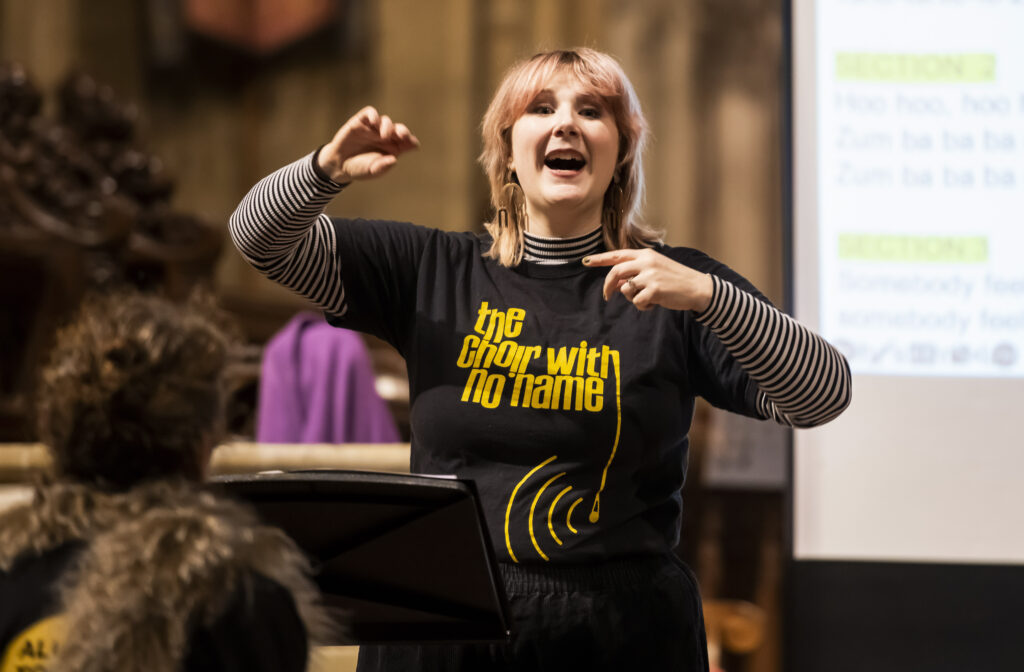
“She was no longer Mary, the psychiatric patient. She was Mary who had one of society’s most important jobs – she helped little children to stay safe. The uniform signalled strength and achievement.
“Because of Mary, Mike and people like them, we set an ambition that 15 per cent of our staff should be former clients.
“We achieved that years ago and now have former clients at all levels within the organisation including in management roles and on our board.
“I hope that, in return for what I’ve learned from clients, I’ve been able to use the platforms that I’ve had, through the media and elsewhere, to advocate for improved services and better policies from national and local government.
“Those of us who care about injustice must redouble our efforts to seek the change needed if we are to call our society caring, civilised and progressive. Because even tonight, people are bedding down on our streets. That should shame us all.”









